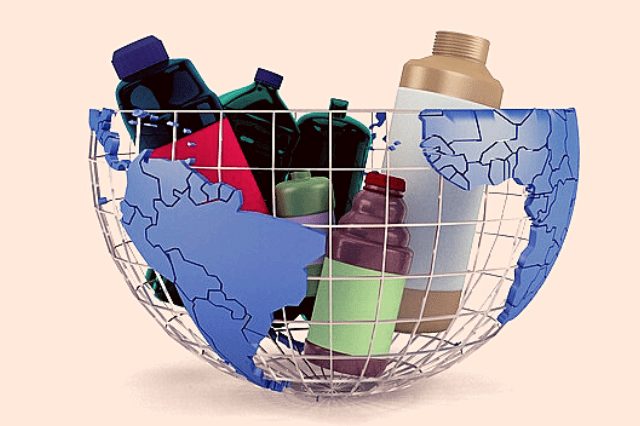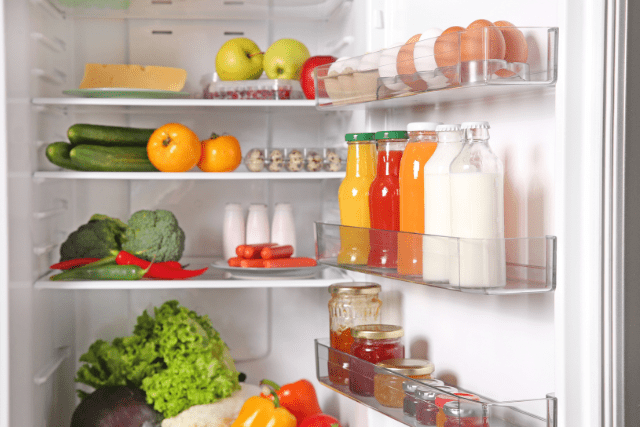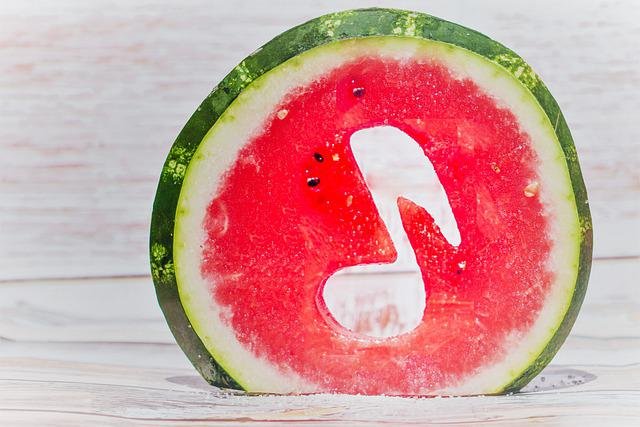Here are 10 easy ways to reduce single-use plastic in your kitchen without making major changes to your lifestyle. Let’s give them a try and we can make a difference. It’s no secret that plastic is polluting our planet. Every day, it seems like there’s another news story about the devastating effects of plastic pollution.
The problem is only getting worse, with an estimated 12 million metric tons of plastic entering the ocean each year. The problem is so bad, in fact, that there have been calls to ban all single-use plastics. While this may be a drastic measure, it’s clear that something must be done to reduce the amount of plastic waste we produce each year.
What is single-use plastic?
Do you know those little plastic water bottles that you grab on your way out the door? The disposable coffee cup that you get from your neighborhood café each morning? The plastic forks and knives that you use to eat your lunch at work? All of these items are examples of single-use plastics.
Single-use plastics are designed to be used once and then thrown away. Unfortunately, most of these items are not properly recycled and end up in landfills or the ocean. Every year, millions of tons of single-use plastics are produced, and a large portion of this waste ends up in our environment.

10 ways to reduce single-use plastic in your kitchen
The good news is that there are plenty of ways to reduce the amount of single-use plastic in your kitchen without making major changes to your lifestyle. Here are 10 easy tips for you to try:
1. Bring Your Own Reusable Shopping Bags
One of the easiest ways to reduce your reliance on single-use plastic is to simply bring your own reusable shopping bags with you when you go to the store. reusable shopping bags come in a variety of materials, including cloth, canvas, and even recycled plastic. If you forget your reusable bags at home, try to choose paper over plastic.

If you often buy fresh fruits and vegetables, invest in some reusable produce bags so you can avoid using disposable plastic bags. You can find these bags at most major retailers or online. Reusable produce bags are often made from cloth or mesh and can be washed and reused multiple times.
2. Purchase items in bulk when possible
Whenever possible, buy items in bulk rather than individually wrapped items. This not only saves money but also reduces the amount of single-use plastic waste. Individually wrapped items are often unnecessarily packaged and create a lot of unnecessary waste.
In the kitchen, some examples of bulk purchases include buying spices in jars rather than single-use packets, purchasing a block of cheese rather than pre-shredded cheese in a plastic bag, and buying dry goods like flour and sugar in reusable bags. Buying in bulk can take some planning ahead, but it’s worth it to reduce your reliance on single-use plastics.
3. Bring Your Own Reusable Water Bottle
Another easy way to reduce your reliance on single-use plastic is to invest in a reusable water bottle and carry it with you everywhere you go. There are a variety of different types of reusable water bottles available on the market, so you can find one that fits your needs and lifestyle. If you don’t like carrying a water bottle with you, try to find a water fountain where you can fill up your bottle instead of buying bottled water.
4. Bring Your Own Reusable Coffee Mug
If you’re a coffee drinker, invest in a reusable coffee mug and bring it with you to your local coffee shop. Most coffee shops will be happy to fill up your mug with coffee instead of using a disposable cup. You can also find reusable travel mugs that will keep your coffee hot for hours.
5. Avoid Packaged Foods
One of the best ways to reduce your reliance on single-use plastic is to avoid packaged foods as much as possible. When you’re at the grocery store, try to buy items that are not packaged in plastic or that come in packaging that can be recycled or reused. If you do buy packaged foods, try to find ones that are made with recyclable or biodegradable materials.
6. Use Reusable Storage Containers
Instead of using disposable storage bags or containers, invest in reusable storage containers that you can use over and over again. There are a variety of different types of reusable storage containers available on the market, so you can find ones that fit your needs and lifestyle. Reusable storage containers are often made from glass, metal, or silicone, which are all more durable and eco-friendly than plastic.

8. Use Bar Soap Instead of Liquid Soap in Plastic Bottles
Ditch the liquid hand soap in plastic bottles and opt for bar soap instead. Bar soap is just as effective as liquid hand soap at cleansing hands, but it doesn’t come with all of the waste. Once you’ve used up all of the bar soap, you can simply compost it or recycle it. Plastic bottles, on the other hand, often end up in landfills where they take hundreds of years to break down.
Plus, there are plenty of eco-friendly and sustainable options when it comes to bar soap. You can find bars made with natural ingredients, like olive oil or coconut oil, that are gentle on the skin and better for the environment.

9. Avoid purchasing single-use plastic accessories
Say no to straws and coffee stirrers and opt for reusable alternatives instead. Stainless steel or bamboo straws can be used over and over again, and they don’t take up much space so you can easily keep them in your purse or backpack for when you need them. If you like to have stirring sticks on hand for your coffee or tea, try using chopsticks instead of throw-away plastic ones.

You can also cut down on plastic wrap and storage bags by switching to reusable options like Beeswax wraps and silicone storage bags. These products are environmentally friendly and will save you money in the long run since you won’t have to keep buying new disposable plastic wraps and bags.
10. Compost Your Food Scraps
Instead of throwing away your food scraps, compost them! Composting is a great way to reduce waste and help your garden grow. You can either start your own compost pile or bring your food scraps to a local community garden or composting facility. If you live in an apartment or don’t have space for a compost pile, there are also small kitchen composters available that will make it easy for you to compost indoors.
11. Shop at Local Farmer’s Markets
One of the best ways to reduce your reliance on single-use plastic is to shop at local farmer’s markets instead of grocery stores. Farmer’s markets typically have a wide variety of fresh fruits and vegetables available, and many vendors use minimal packaging or allow customers to bring their own bags or containers. Shopping at farmer’s markets also supports local farmers and helps to boost the economy.
Conclusion
There are many ways to reduce single-use plastic. By making small changes in your daily routine, you can help reduce the amount of plastic waste that ends up in our oceans and landfills. Together, we can make a big difference in reducing single-use plastic in the kitchen and elsewhere by making small changes.
Let’s get started today!







